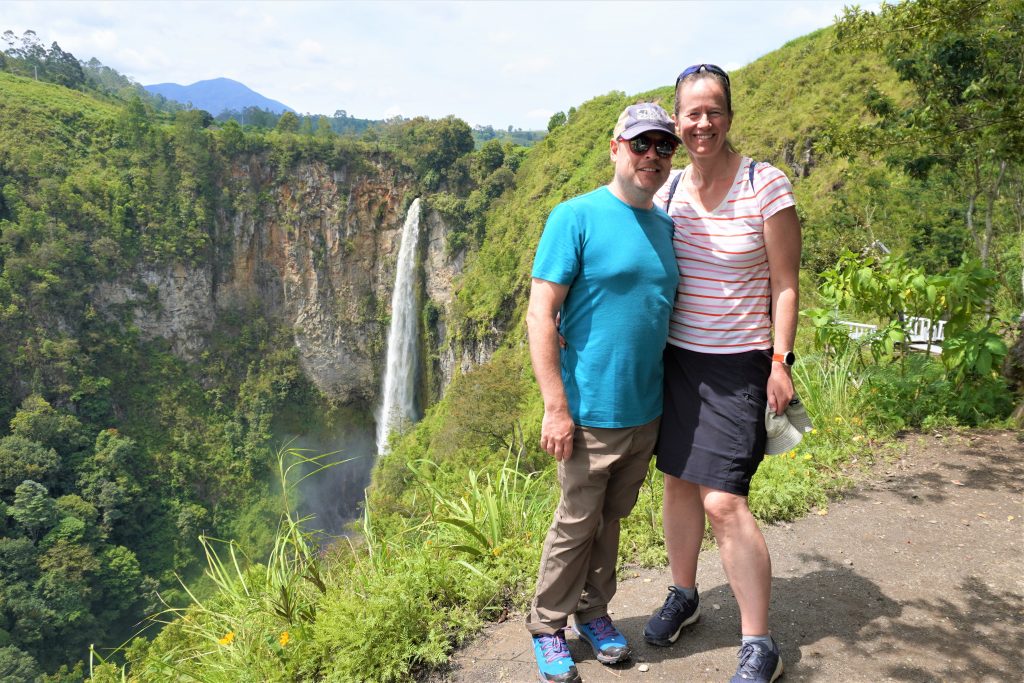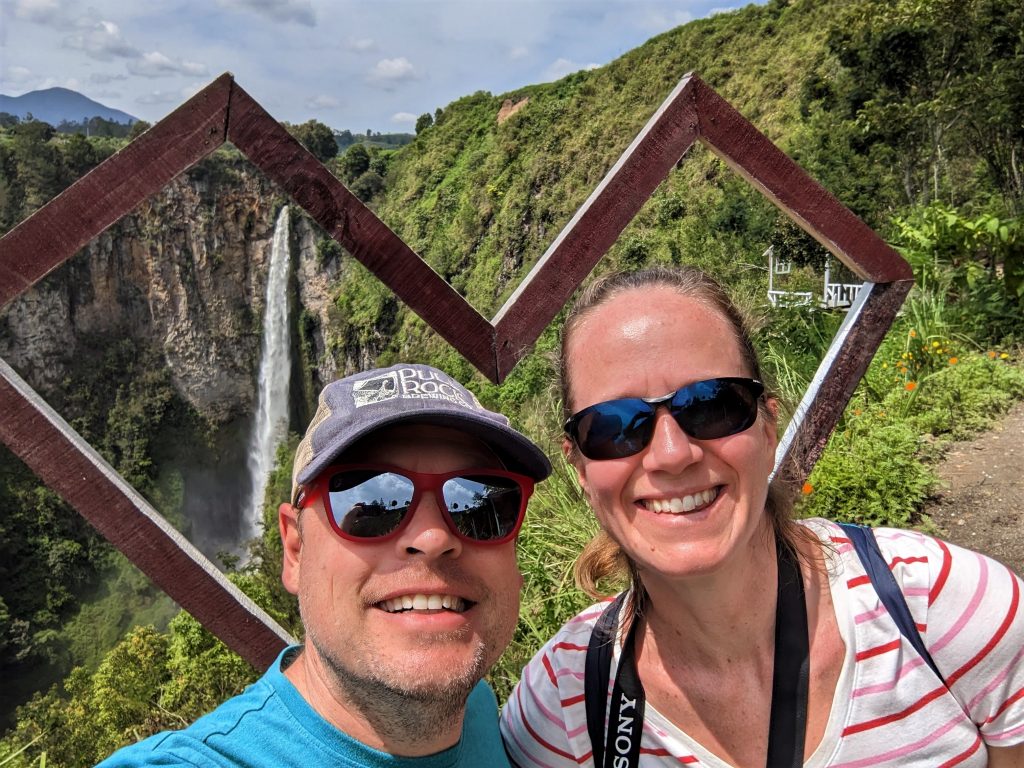
In January we met friends in North Sumatra to visit Lake Toba and Berastagi. Lake Toba is the largest volcanic lake in the world. It formed after a giant volcano had a huge eruption around 70,000 years ago. Today it is one of Indonesia’s lesser-visited tourist destinations for foreigners, and a popular weekend getaway for Indonesians on Sumatra.
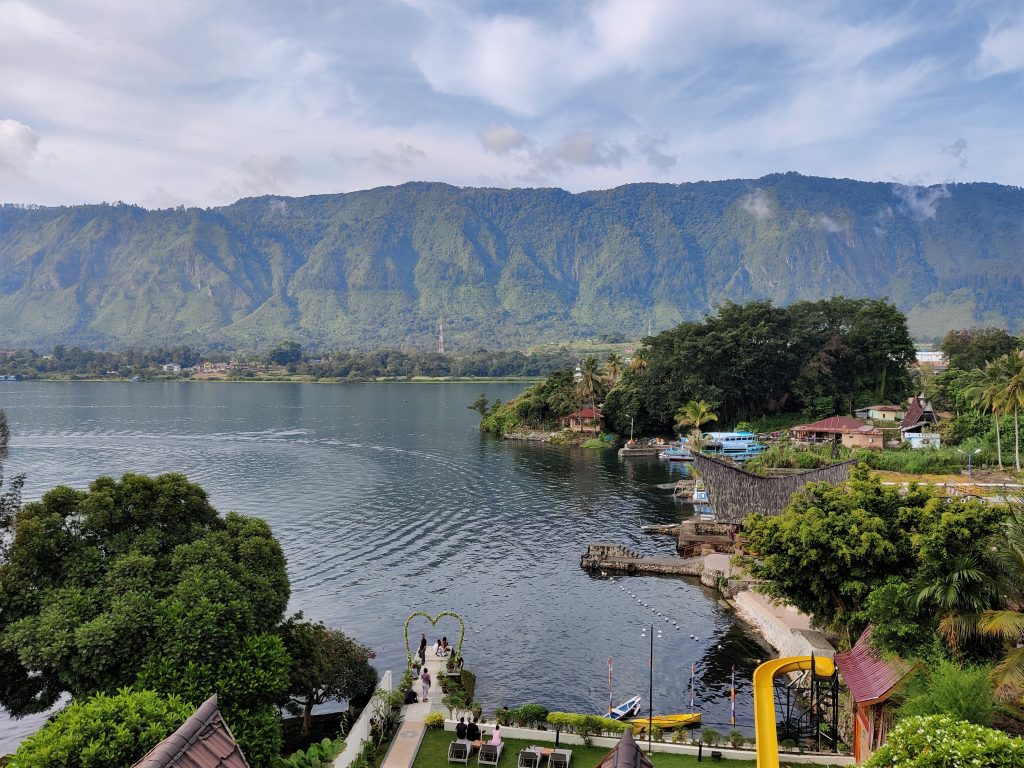
We stayed on Samosir Island, a fairly large island in the middle of the lake. Our room had a balcony overlooking the lake, so we spent a lot of time just relaxing there and enjoying the view. Our friends are into birdwatching, and it was pretty incredible how many birds we could see from the balcony.
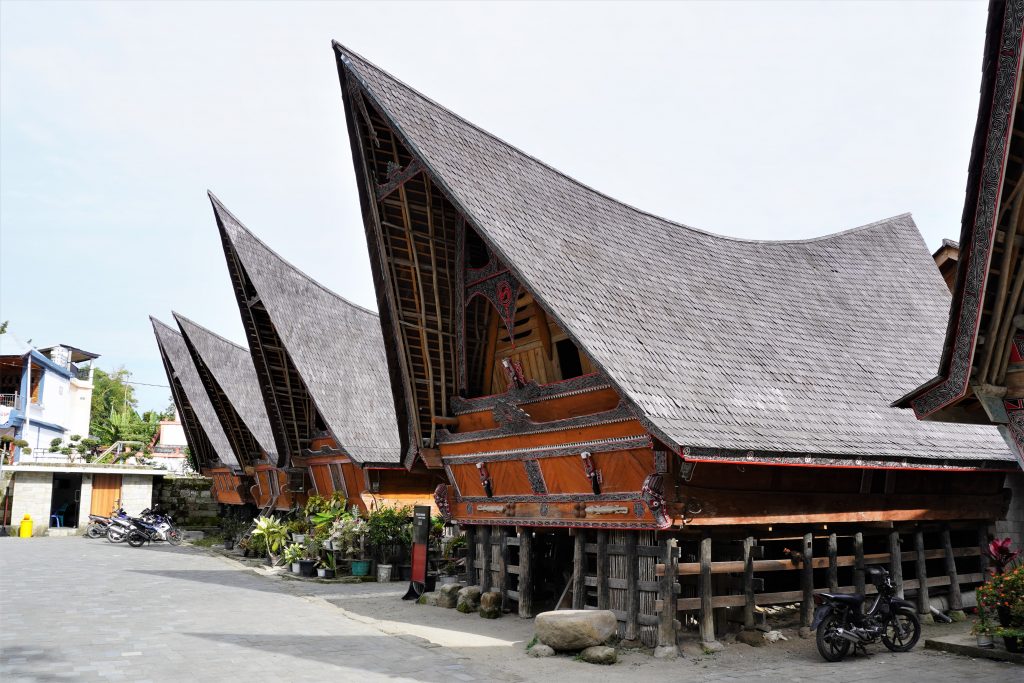
This region is the home of the Batak people. The Batak are largely Christian, so pork is part of their diet, unlike many other places in Indonesia. Batak people still build houses in their traditional style, and the large boat-like structures can be seen all over Samosir Island. The island also has some important historic sights on it related to Batak culture. One is the Stone Chair of King Siallagan (Batu Kursi Raja Siallagan). This site has two groups of stone chairs set in a circle that are believed to be around 200 years old. They are said to have been used as an official meeting place and as an execution site.
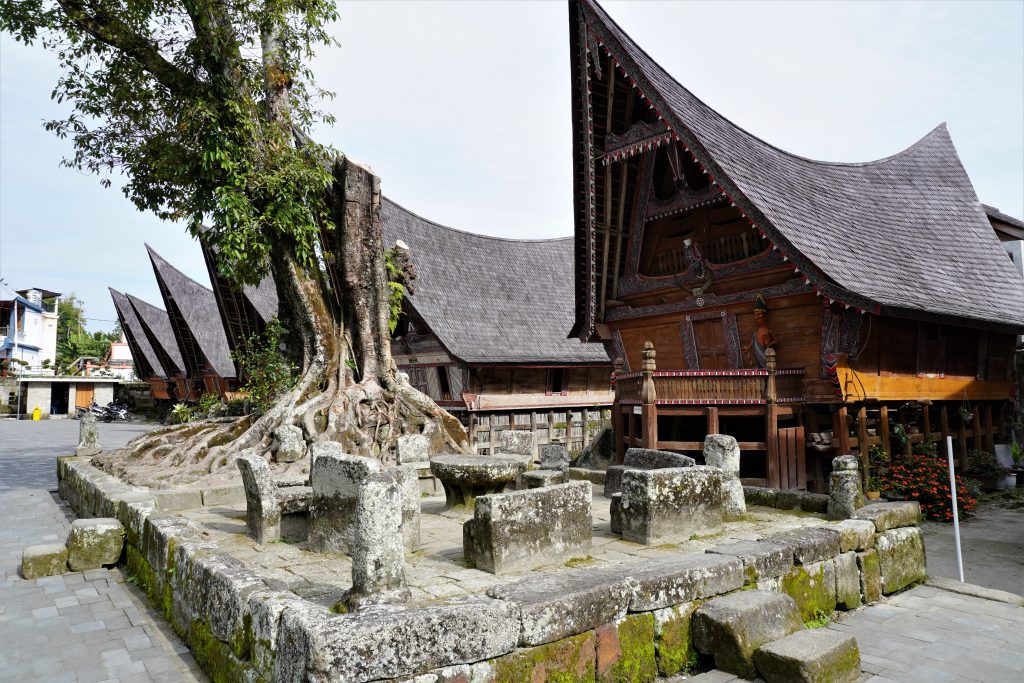
Near Huta Siallagan there is a Batak Museum, as well as the tomb of King Sidabutar. The Batak carvings in stone and wood are quite beautiful, and the above-ground tombs were interesting to see. Batak people traditionally perform a ceremony several years after a person has died, washing the bones and then reburying them in traditional ulos cloths. Above-ground cemeteries can been seen in many villages and next to many homes in this region.
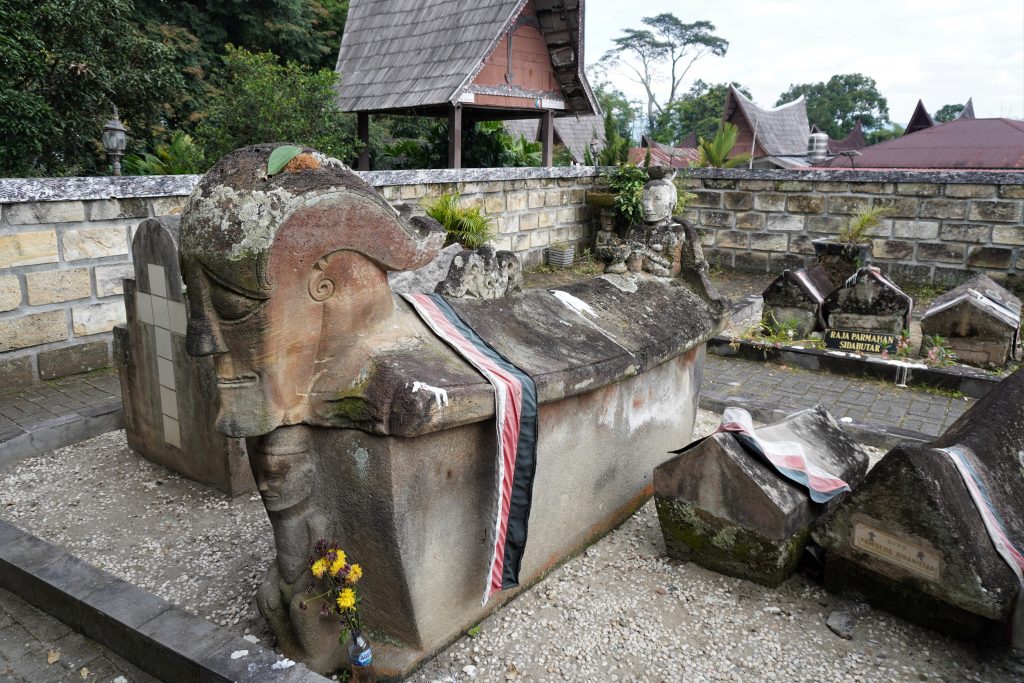
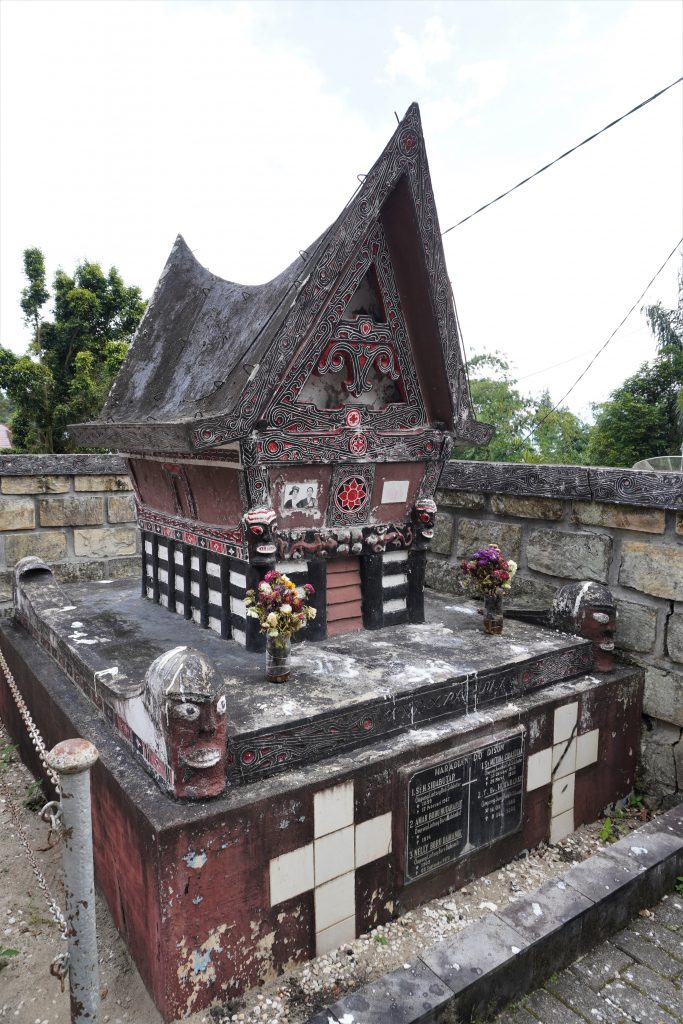
All over Indonesia we’ve seen traditional textile work, and Samosir Island was no exception. The traditional fabric of Batak people is called ulos, and it’s a type of ikat, a woven textile. Angie couldn’t resist buying one at the Ulos village on the north side of the island, where several women were weaving outdoors to demonstrate the traditional craft for tourists.
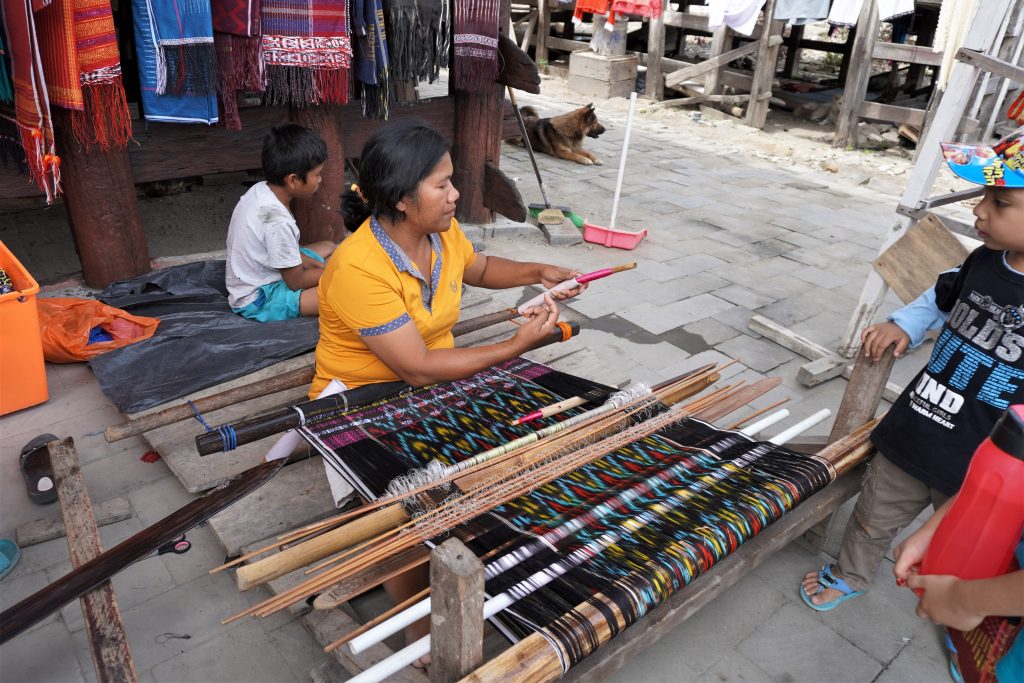
The other thing lots of tourists do on Samosir is go to one of the beaches along the lake. We’ve been to a few of these Indonesian tourists beaches at this point in our life here, and it’s quite a cultural experience. Usually it’s a lot of multi-generational families enjoying their day out with a picnic lunch and some swimming. We visited Batuhoda beach and it was no exception. Since we’re always a little wary of fresh water in countries without good sanitation measures, we didn’t venture in the water beyond our ankles. But the beach was a nice spot to take a break from the scooters for a bit and to people watch the folks out to enjoy the sun and take photos at the many Instagram-ready backdrops lining the beach.
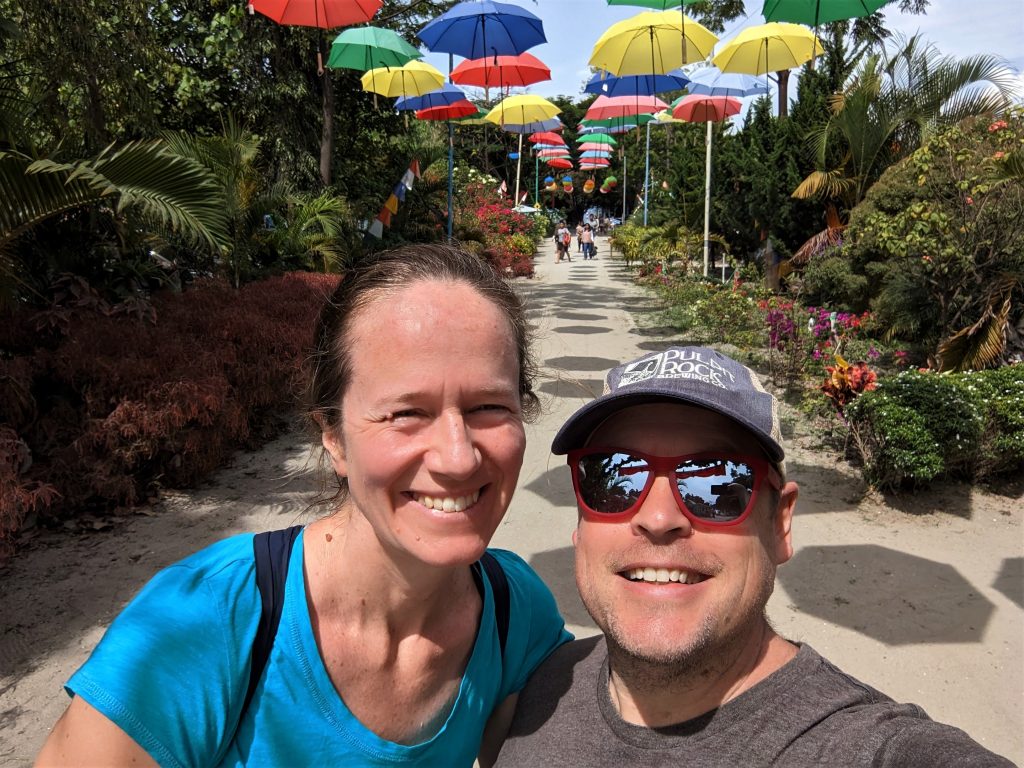
The best parts of Samosir Island were the beautiful views. We rented scooters and rode all over the island, occasionally stopping at one of the numerous coffee stalls for a drink with a view. It was a relaxing trip, and the perfect way to welcome in the new year.
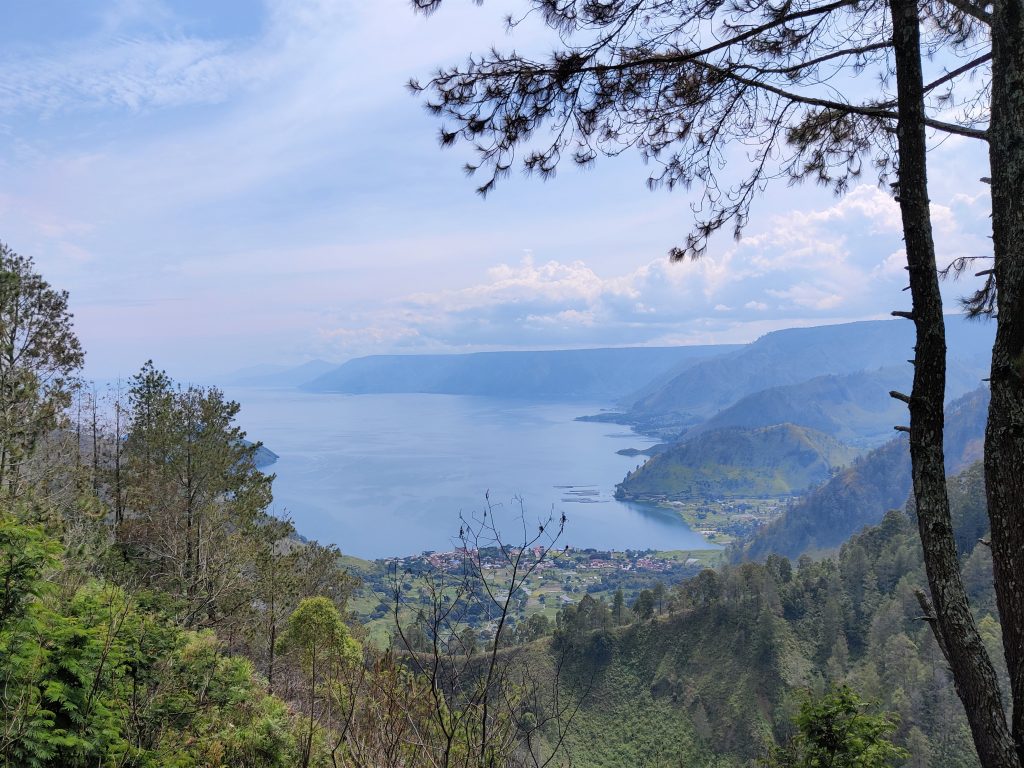
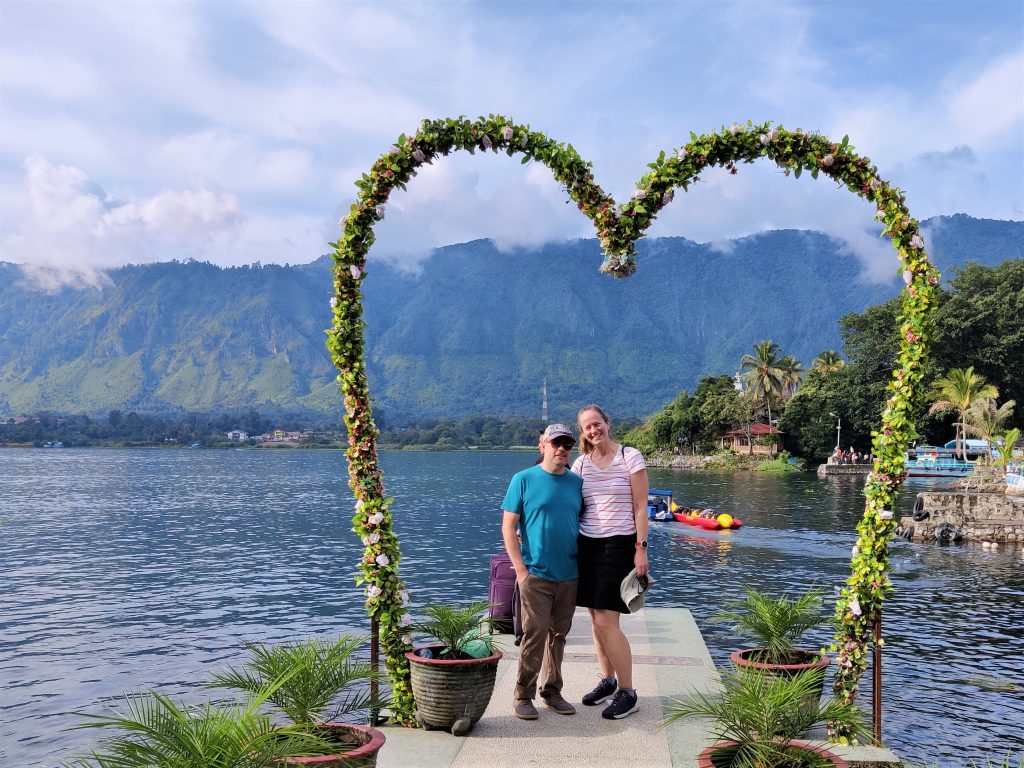
After a few nights we took the ferry across the lake and headed off to Berastagi, which I’ll write about in the next post. But on the way there, we stopped off at Sipiso Piso waterfall. Sipiso Piso is a 120m waterfall that flows into Lake Toba from the north. This is another popular tourist spot, and the view of the falls was definitely worth it!
